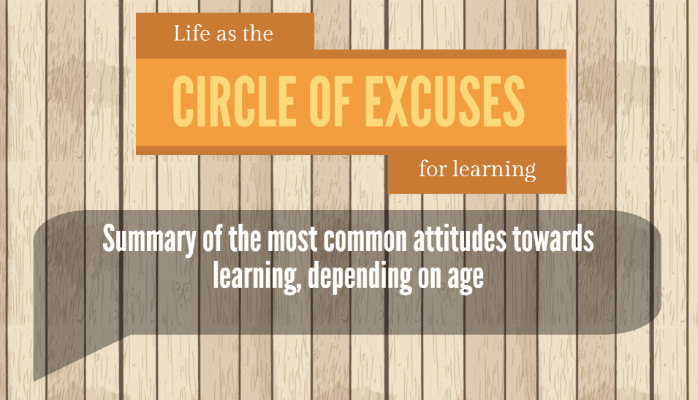What’s here for you?
Like it or not, this post should concern you. Either bringing more tools to learn rapidly or to understand your environment better. You can even take it as an insult. As long as my message about the facts, possibilities, and risks related to learning gets to you, I have succeeded, because I already know that:
Anyone who stops learning is old
~Henry Ford
and I really want you to know this as well.
Many perspectives
Being a trainer, teacher and researcher for recent few years, all my time is focused on learning and skills development. Working with students, activists and business professionals of all ages around Europe, I have encountered variety of attitudes towards learning. Many of them make it so complicated for you to learn…
World of amazing opportunities
Learning is accessible, as it never was before. You can easily find an answer for any of your questions on Google, Wikipedia, and millions of other dedicated pages. You can learn how to do whatever you want using Youtube, Instructables, Wikihow. You can search for inspiration if you are not sure what you are looking for on Pinterest. You can even attend full expert courses on most of the current industry hot topics via Coursera.org, Edx.org and others. You can learn on the go, using your mobile phone thanks to Duolingo, Blinkist and similar apps. You can even find a list of many other sources of knowledge like this in less than 20 seconds. All of it for free, accessible within a blink of an eye.
Sad truth
What did you learn today? How will it affect your future and what did you plan to learn tomorrow? I do not expect you to give me an answer, as I know you might not have one. Lifelong Learning as I have, unfortunately, encountered is only a series of organised learning events, happening more or less frequently. People switch their attitude from “expecting to be taught” into “willing to learn” at the very same moment they loose a part of cognitive skills, and learning gets more difficult. Only few individuals take it as a continuous journey, seeking new knowledge with no excuses.
A medicine or placebo?
Those organised learning events do happen, however. It is only up to you how often do you plan and arrange them. Sometimes you hire a trainer at the time. Then my job is to show you the new ways and methods to learn, to raise the spirit of a curious child, to let you play and learn on your mistakes. My job is to spend hours on current research about adult learning and implement the results in the workshops I organise for you. My mission is to inspire you to make learning a continuous journey. According to LinkedIn, there is exactly 1,527,106 people doing the same profession as I do. I only wish they treat our profession the same way.
Is such attitude a medicine? I believe so, as many of my trainees do come back for other training events, emphasising the progress they have made in between. It will take years to prove it for you, therefore I only leave it as a question I cannot answer now…




Peter M Makew
Very insightful content.